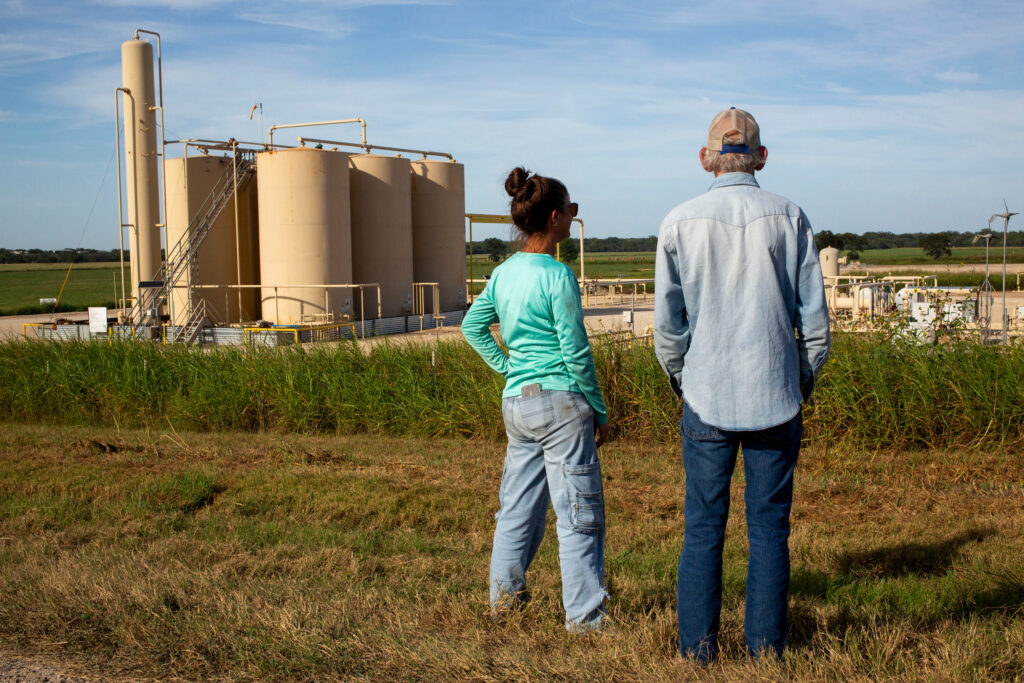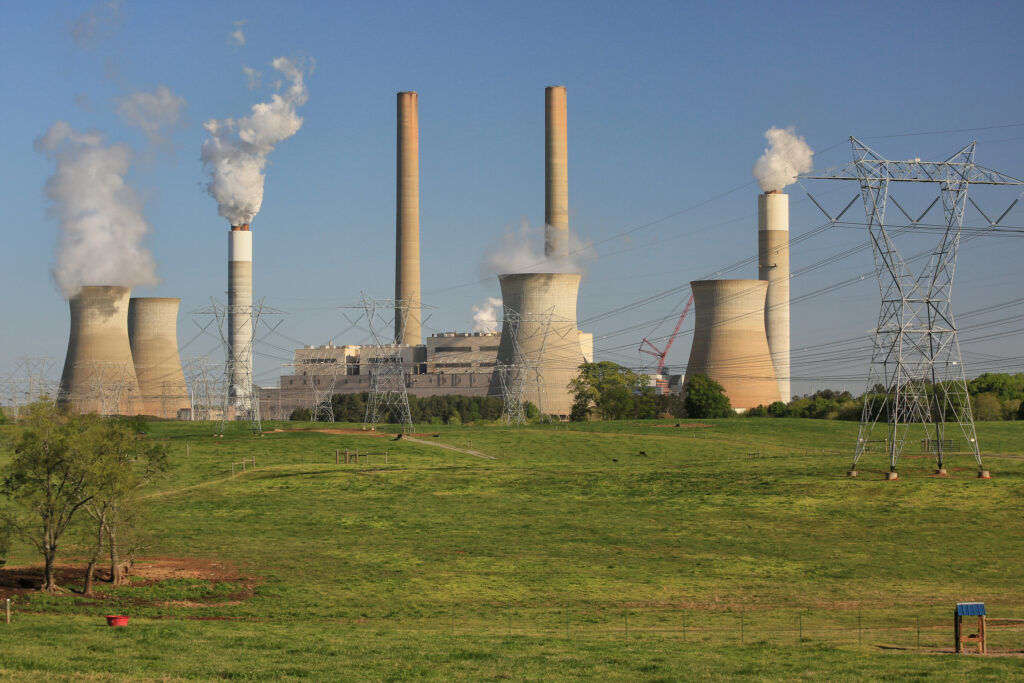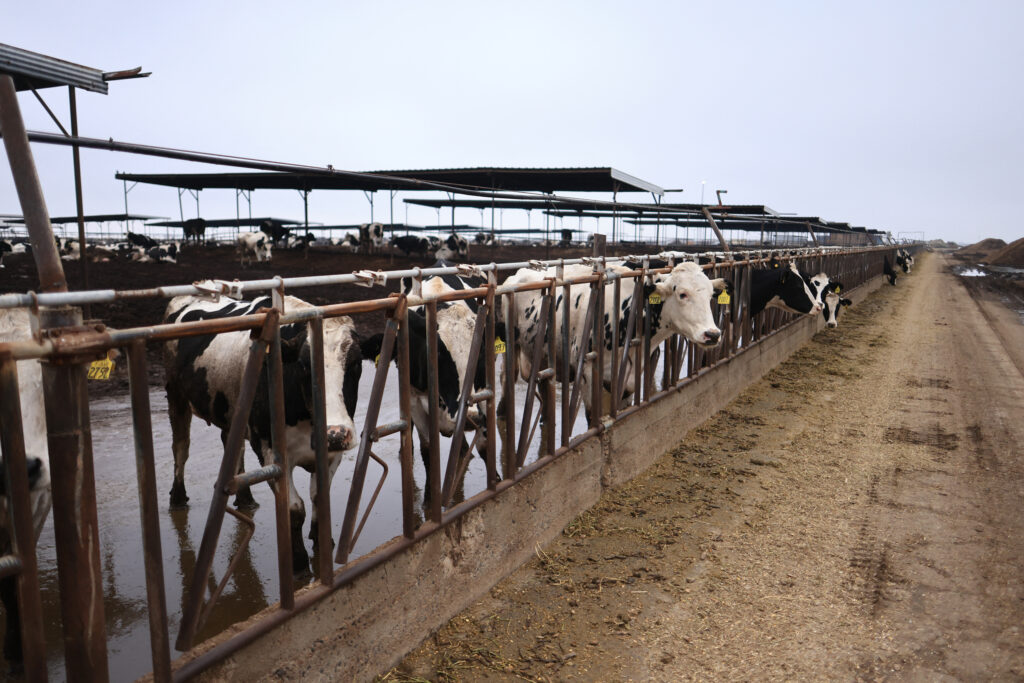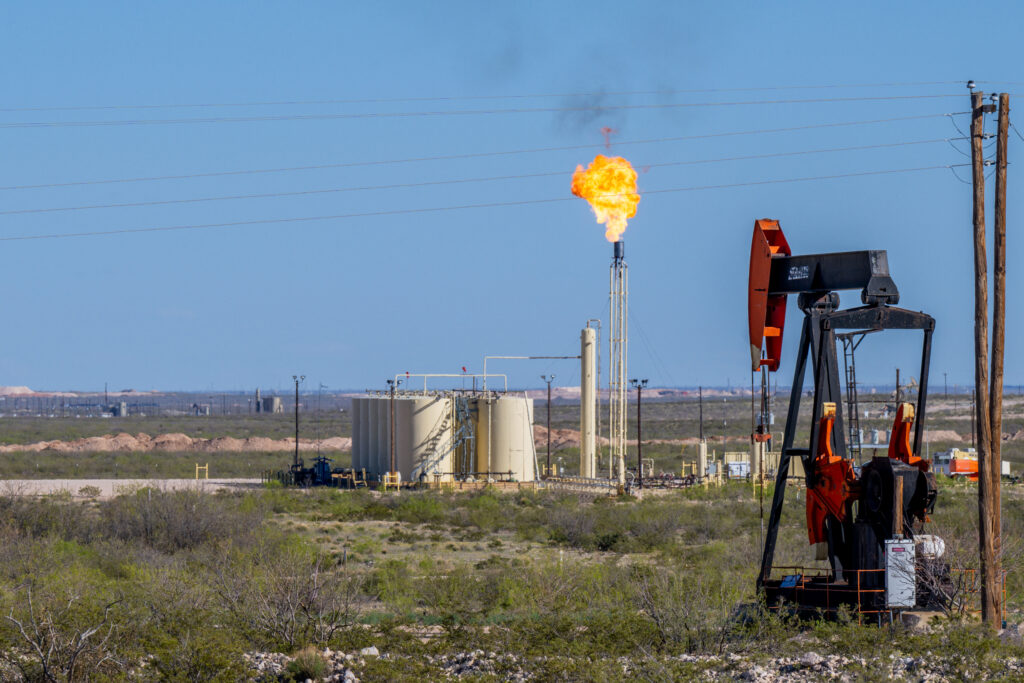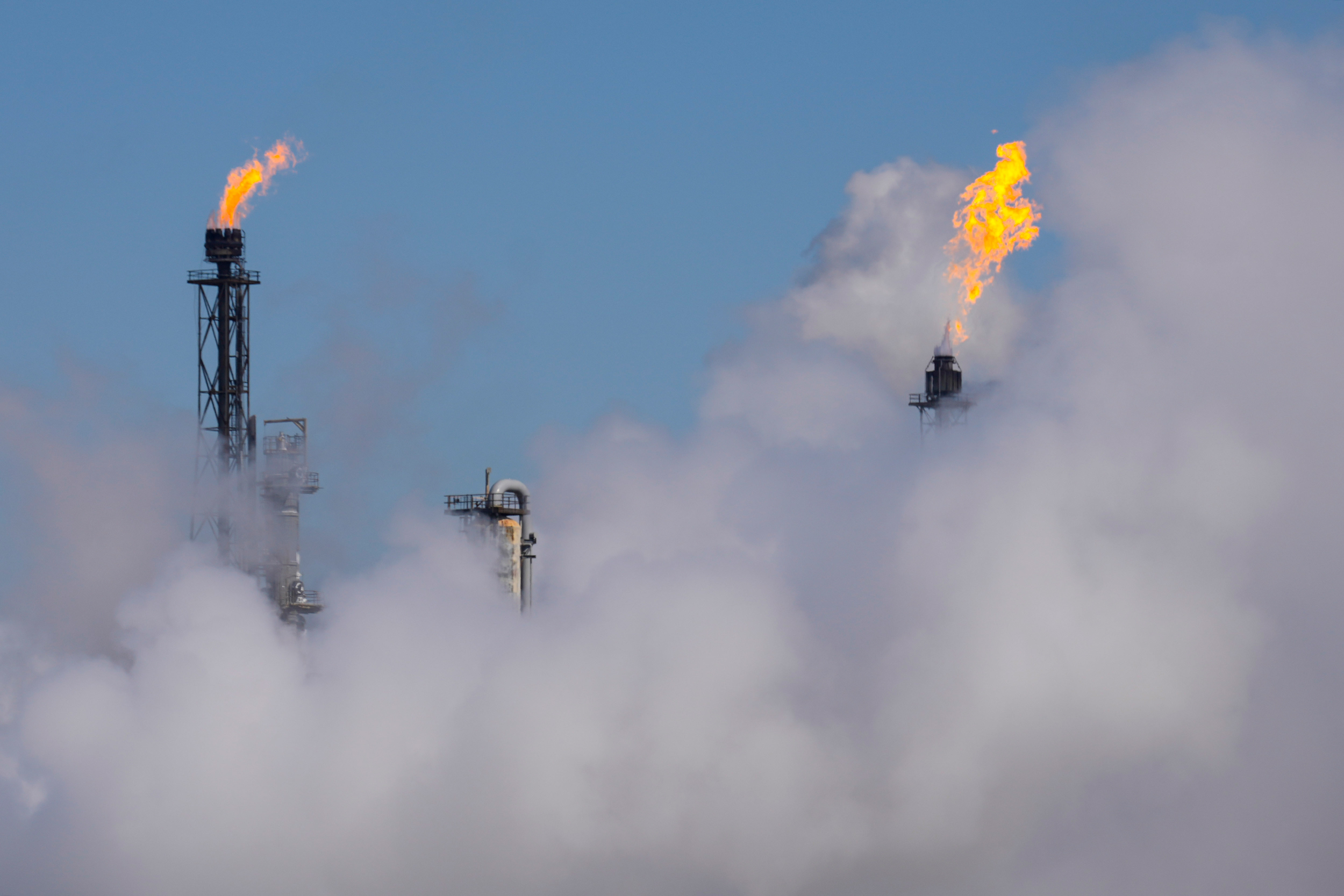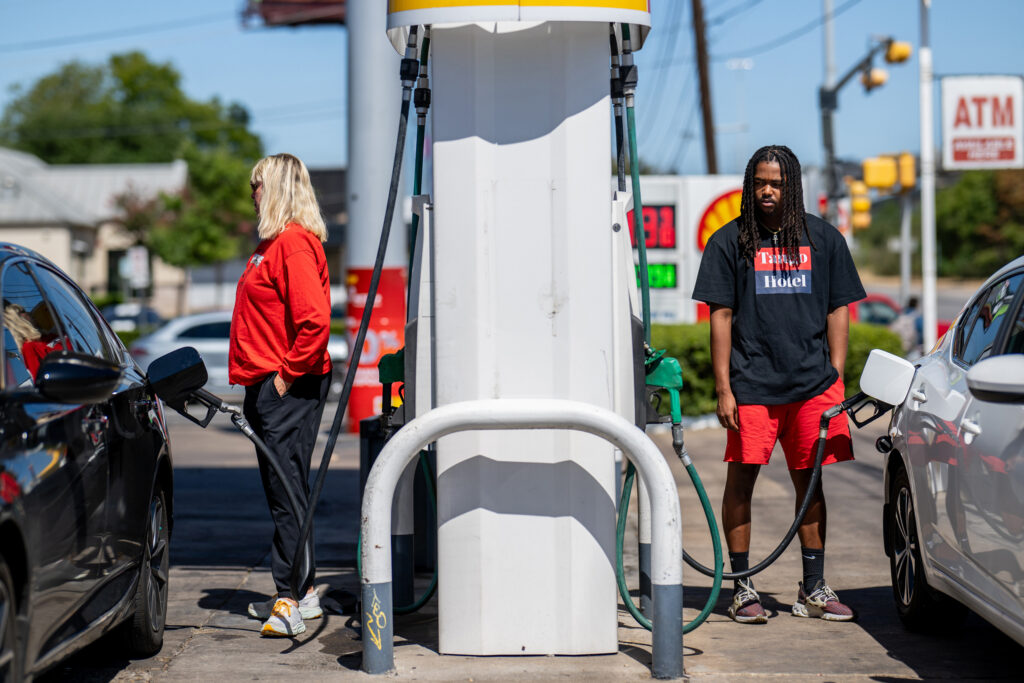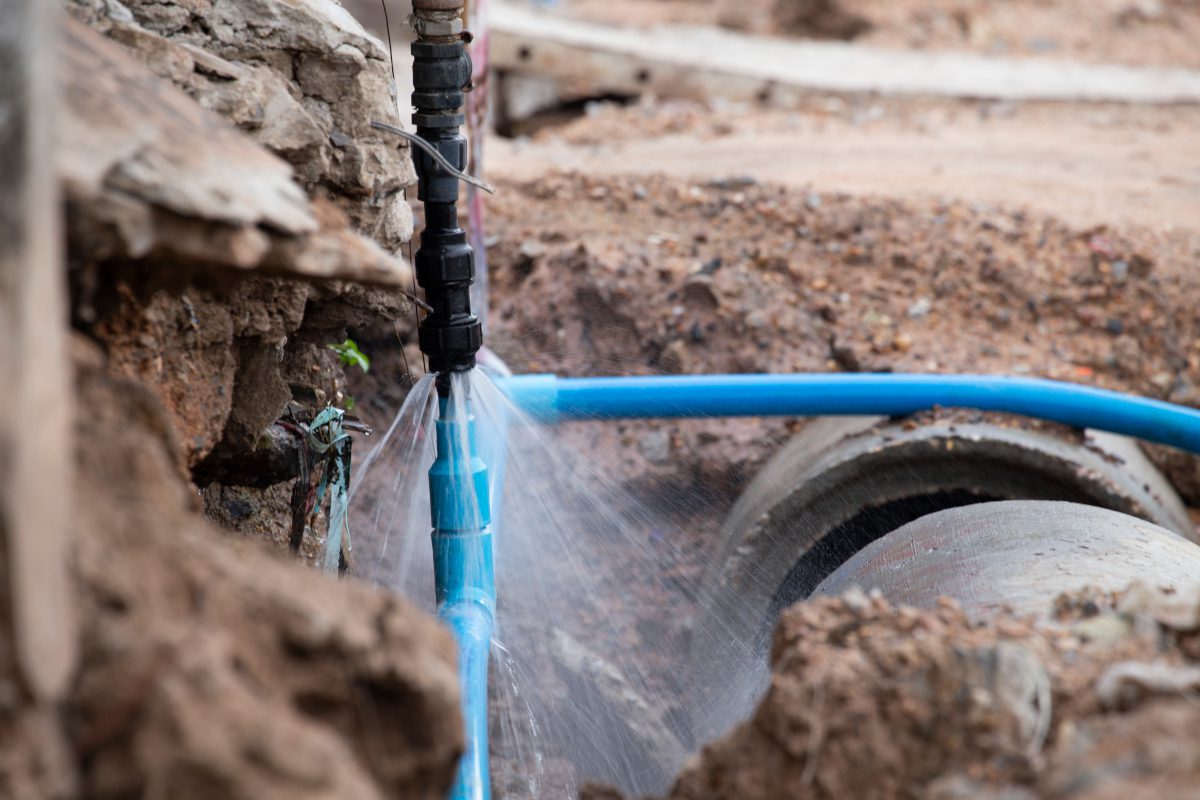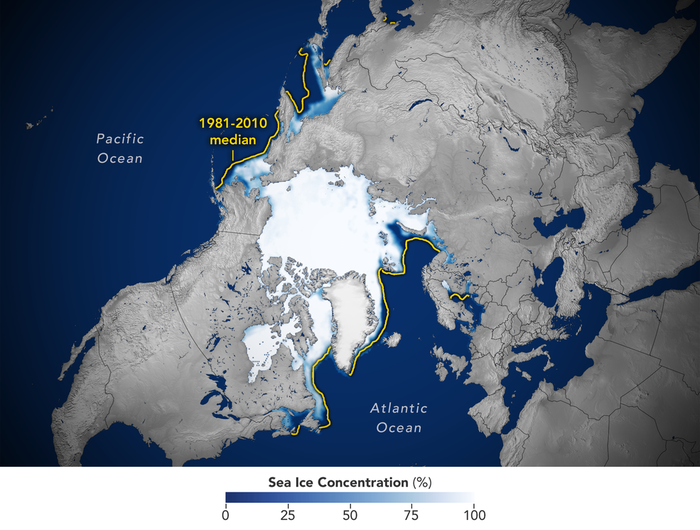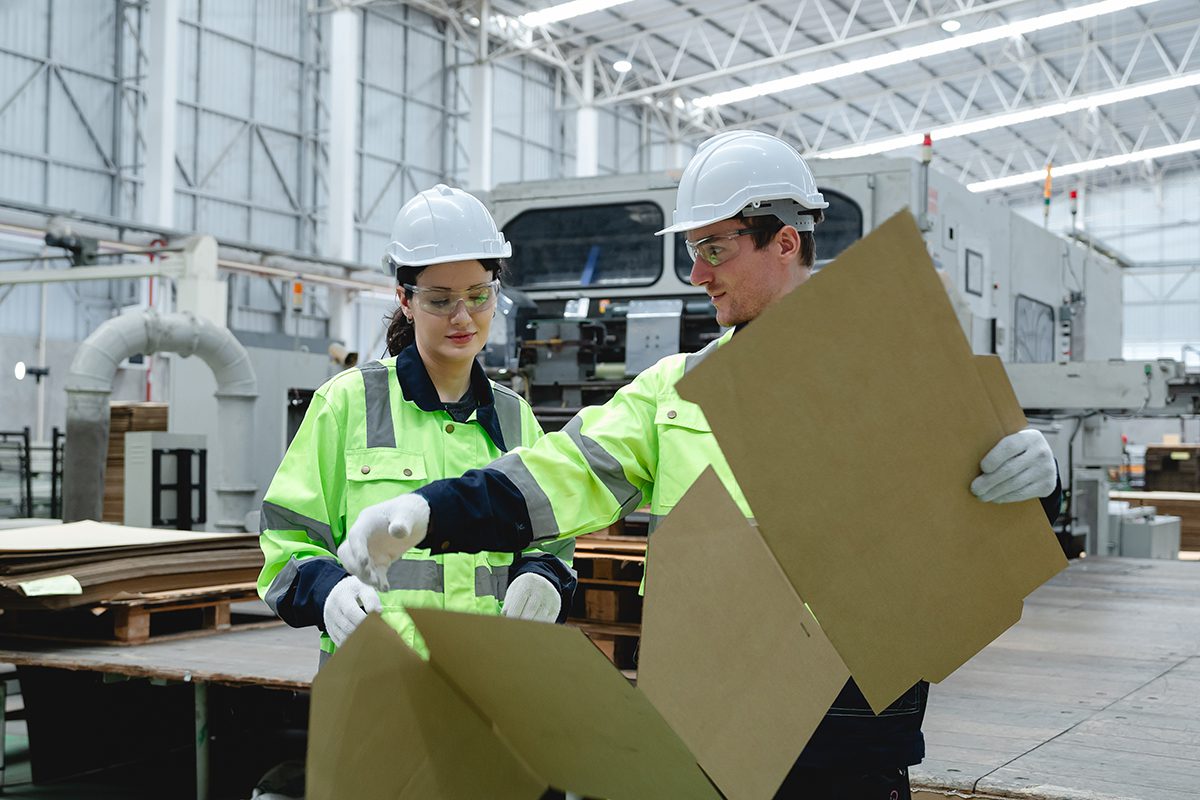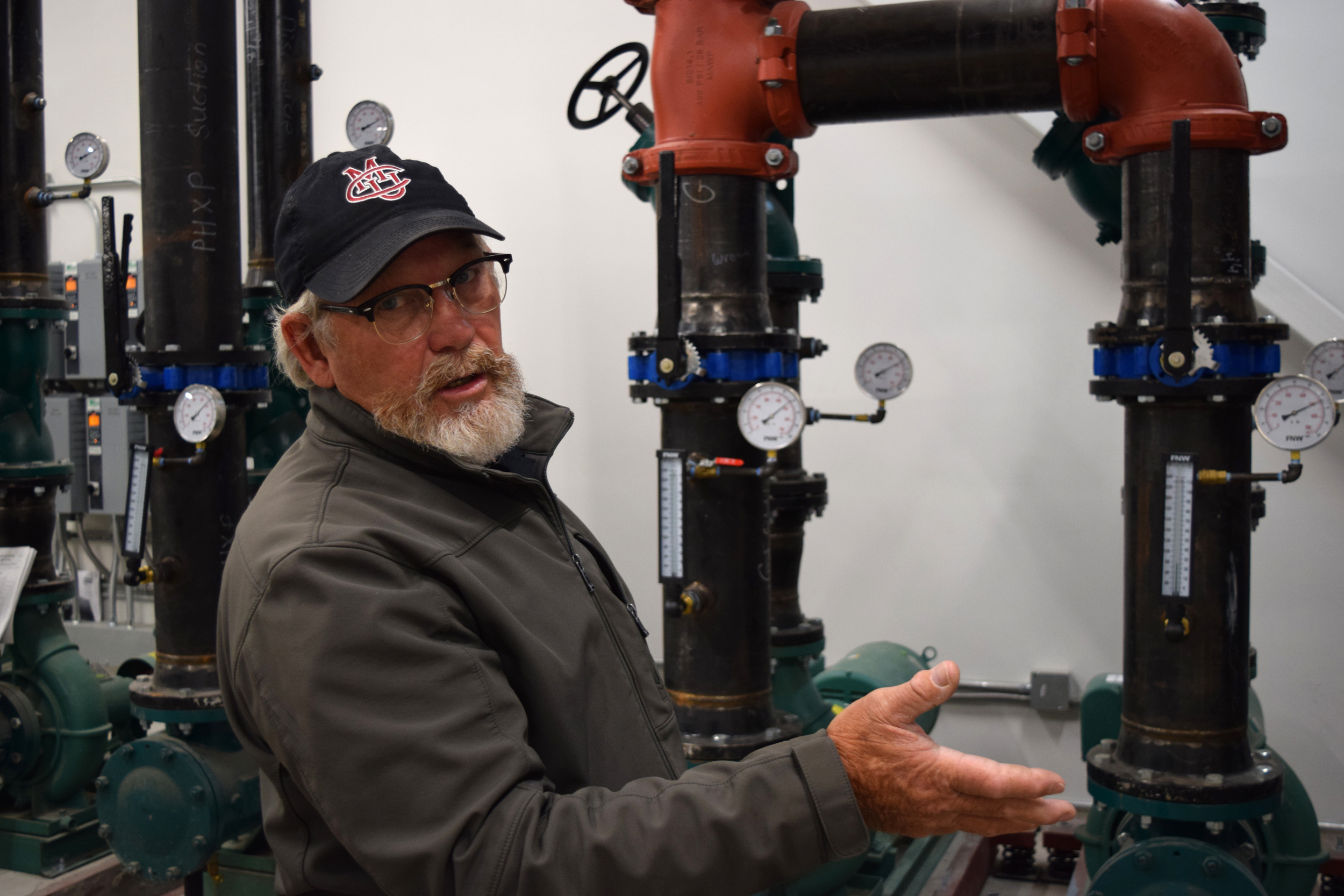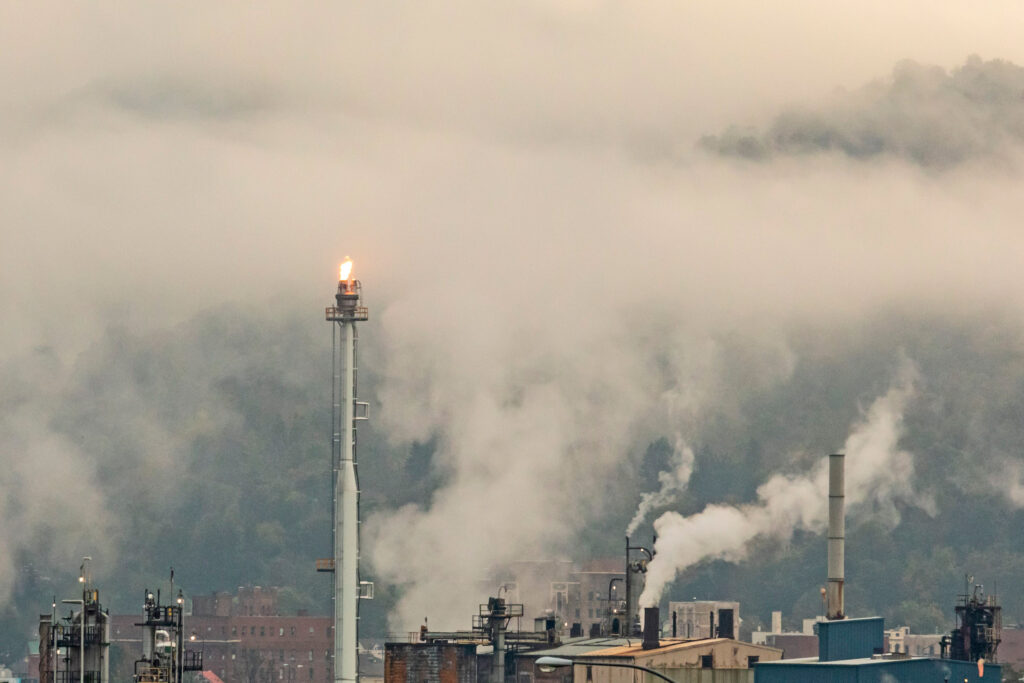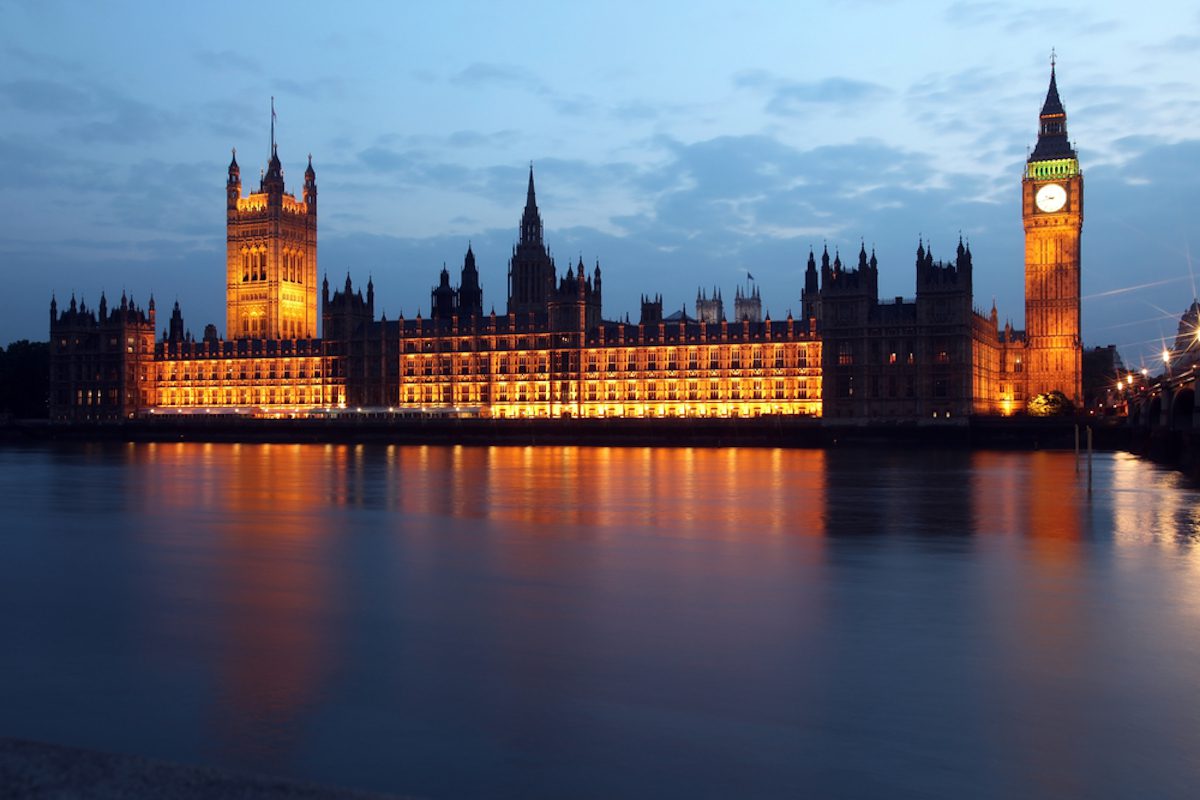The global insurance giant Chubb is no longer providing property insurance for a contested liquefied natural gas export project in southwest Louisiana, according to documents obtained by the Rainforest Action Network and shared with Inside Climate News.
The Calcasieu Pass project, owned by LNG company Venture Global, has faced heavy opposition from residents in Cameron Parish, who fear it will add to already severe pollution, health harms and climate damage in a region that is at the center of the nation’s LNG buildout. Grassroots and international groups have been pressuring Chubb and other insurers to drop projects, like CP, that they argue are injurious to environmental and human health.
Through a public records request, RAN obtained a certificate of insurance placing a Chubb subsidiary, ACE American Insurance Co., on a list of 29 companies that provided property insurance to the project last year. In this year’s certificate of insurance, also obtained by RAN through a public records request and describing the project’s property insurance policy from March 2025 to 2026, ACE was no longer included. LNG terminals require a variety of insurance, including property insurance.
Venture Global confirmed that Chubb previously insured CP and is now no longer underwriting the project’s property insurance, but said that CP declined to renew Chubb’s coverage policy for business reasons after it expired in 2024. Venture Global also noted that Chubb is still involved in other projects.
“Venture Global’s operations are supported by an array of insurers, including Chubb and its subsidiaries, who actively cover our projects across the state of Louisiana,” read a statement emailed by a Venture Global spokesperson.
Chubb did not respond to multiple requests for comment, and the certificate of insurance offers no information about the reasons for the switch.
In 2023, Chubb added standards for methane emissions from oil and gas clients and further updated its corporate climate underwriting criteria in March. Natural gas is primarily methane, a potent greenhouse gas, and it leaks from wells, pipelines, LNG terminals and other infrastructure.
“We may decline coverage if a potential policyholder cannot meet our methane performance expectations,” the standards summary reads.
In its 2024 sustainability report, Chubb noted that it engaged with 147 current and potential clients on the new oil and gas underwriting criteria, and that 32 clients either declined to provide necessary information or “declined the coverage terms we offered, including adoption of methane best practices, and sought coverage elsewhere.”
Carly Fabian, a senior policy advocate with the consumer-rights group Public Citizen, noted that the one-year nature of property insurance policies can give insurers flexibility not to renew for a range of reasons.
“Without a specific disclosure from the company or a clear pattern, it’s often challenging to interpret the impact of a particular corporate climate policy,” Fabian said.
But activists pressuring insurers view the insurance change as a hopeful sign.
“Now Chubb must take the next step in line with its climate commitments and stop insuring Cameron LNG and all methane,” said Ethan Nuss, a senior campaigner at RAN, referring to another export terminal in the parish.
Said Roishetta Ozane, founder of the Vessel Project of Louisiana and a leader in the movement to stop the LNG buildout: “We have been pressuring Chubb for several years now to not insure these dangerous, polluting projects, because insuring those projects is ensuring environmental racism in communities that are overburdened by pollution.”
Insuring the Climate Crisis
LNG exports are a significant contributor to America’s global carbon footprint: An analysis by Inside Climate News last month found that a single year of greenhouse gas emissions from tankers carrying U.S. LNG exports more than cancels out any emissions reductions achieved domestically by electric vehicles. And that doesn’t include the emissions from gas production in the field, piping it to the terminal or liquefying it.
Cameron Parish sits squarely in the midst of the U.S. LNG buildout, which is largely on the Gulf Coast. Although the Biden administration paused approvals for new LNG export terminals last year, one of President Donald Trump’s first actions in January was an order to restart those reviews.

CP LNG began commercial operations in April. Venture Global’s planned CP2 terminal, adjacent to the first one, sped past several key checkpoints in the federal approval process this year.
“Venture Global LNG is hazardous to the health of its surrounding communities,” said Alyssa Portaro, director of Habitat Recovery Project, in a statement. Her group is trying to clean up the Calcasieu River from petrochemical pollution.
“As our climate continues to destabilize, these terminals will pose a greater risk of catastrophe from storm damage,” Portaro said. It would be wise, she added, if Chubb pulls out “of these poorly operating facilities in key biological areas and climate-vulnerable locations.”
As climate disasters become increasingly costly, insurers are backing out of high-risk zones that they say are becoming uninsurable. A global movement of activists is pressuring insurers to also stop underwriting the fossil fuel projects that contribute to rising rates of disaster.
“It’s a slap in the face to find out that the company who dropped your policy due to wildfire risk is still backing powerful fossil fuel clients,” said Fabian, of Public Citizen. “Insurance companies can’t have it both ways, helping corporate clients fuel climate change and then charging their customers more for the consequences.”
In Southwest Louisiana, residents are facing pollution from new LNG facilities while also living on the frontline of climate disasters, experiencing repeated destruction from hurricanes that are increasing in severity as global emissions continue to rise.
Ozane, of the Vessel Project, said the cost of insurance for her home in Calcasieu Parish, on the border of Cameron Parish, has quadrupled in the past few years.
“We’re having to pay the cost of these climate-induced disasters,” Ozane said. “Yet the facilities that are contributing to these climate-induced disasters with the pollution that they’re giving off every day and the emissions, they get insurance certificates and continue to run and contribute to the disaster that’s causing a burden on the community.”
Ozane and others have targeted Chubb, in particular, given the company’s stated commitments to sustainability.
This story is funded by readers like you.
Our nonprofit newsroom provides award-winning climate coverage free of charge and advertising. We rely on donations from readers like you to keep going. Please donate now to support our work.
Donate Now
In April, Chubb became the 30th major insurer worldwide to confirm that it would not ensure the East African Crude Oil Pipeline, EnviroNews Nigeria reported. EACOP, a pipeline running from Uganda to Tanzania, has sparked global protests and outcry from climate and human rights defenders, who have documented mass displacement and environmental harms. RAN also announced last year that Chubb, which previously insured Rio Grande LNG in Texas, was no longer providing liability insurance for the project. Both announcements followed pressure campaigns from activists targeting insurers.
Chubb is still involved with LNG projects on the Gulf Coast: Its ACE subsidiary currently provides a liability insurance policy to a nearby terminal, called Lake Charles LNG, owned by Energy Transfer, the company behind the Dakota Access Pipeline.
Community Members Raise Climate and Health Concerns
Residents of Cameron Parish have expressed concern that CP LNG is endangering their health, local ecosystems and fishing industry, and have said their complaints to Venture Global have fallen on deaf ears.
Pollution from LNG operations can contribute to health issues including low birth weight, impaired lung function, asthma, chronic disease and increased cancer risk. It adds to the burden in a state already disproportionately exposed to toxic industrial emissions: A 2022 study from Tulane University found that carcinogenic air pollution contributes to Louisiana’s cancer rate, with the most severe impacts falling on majority Black and impoverished neighborhoods.
The CP terminal has received repeated notices of environmental violations: A report from local environmental group the Louisiana Bucket Brigade found that the company had more than 2,000 permit violations in its first year of operation and violated its permit on most days that year.
John Allaire, an environmental engineer and former oil company employee, said he has lived in Cameron Parish for nearly 30 years and raised his children in the area. Allaire, who led the Louisiana Bucket Brigade’s analysis and lives near the CP facility, described noise, light and water pollution and repeated flares—burning waste gases—that he said are in clear excess of the facility’s yearly allowance.
Venture Global did not respond to questions about its facility’s permit violations.
In a statement on the U.S. Department of Energy’s 2024 analysis on LNG, then-Energy Secretary Jennifer Granholm wrote that “pollutants such as methane, volatile organic compounds, particulate matter, nitrogen oxides, and others lead to higher mortality rates in communities where oil and gas are extracted and processed—a problem that, absent regulatory intervention, will only get worse, if volumes of LNG exports continue to dramatically increase.”
The U.S. already is the world’s largest exporter of LNG. Its export capacity is expected to more than double in the next three years.
Advocates and local residents have argued that the concentration of LNG buildout on the Gulf Coast, often impacting low-income communities and communities of color, is an example of environmental racism. The region has sometimes been labeled a “sacrifice zone” as a result.
“Our communities have always been labeled a certain way,” Ozane said. “Whatever label that we have, it just means that we are a community that they don’t care about, that they’re willing to sacrifice in order to make money.”
But Ozane and others say they aren’t willing to accept that fate.
“We are not a sacrifice,” she said. “We won’t sit idly by and allow these type of projects to come into our communities without a fight.”
About This Story
Perhaps you noticed: This story, like all the news we publish, is free to read. That’s because Inside Climate News is a 501c3 nonprofit organization. We do not charge a subscription fee, lock our news behind a paywall, or clutter our website with ads. We make our news on climate and the environment freely available to you and anyone who wants it.
That’s not all. We also share our news for free with scores of other media organizations around the country. Many of them can’t afford to do environmental journalism of their own. We’ve built bureaus from coast to coast to report local stories, collaborate with local newsrooms and co-publish articles so that this vital work is shared as widely as possible.
Two of us launched ICN in 2007. Six years later we earned a Pulitzer Prize for National Reporting, and now we run the oldest and largest dedicated climate newsroom in the nation. We tell the story in all its complexity. We hold polluters accountable. We expose environmental injustice. We debunk misinformation. We scrutinize solutions and inspire action.
Donations from readers like you fund every aspect of what we do. If you don’t already, will you support our ongoing work, our reporting on the biggest crisis facing our planet, and help us reach even more readers in more places?
Please take a moment to make a tax-deductible donation. Every one of them makes a difference.
Thank you,




